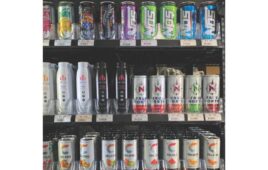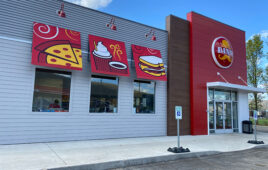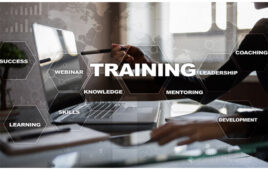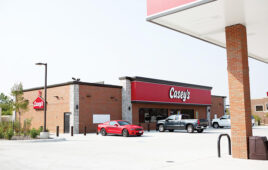Convenience Stores Against Trafficking (CSAT), a program of national nonprofit In Our Backyard, works with the c-store industry to combat human trafficking in the U.S.
By David Bennett, Senior Editor
Because human trafficking is a vastly underreported crime, many Americans don’t appreciate how wide spread it is nationwide. Also unknown is how the c-store industry is uniquely positioned to play a vital role in disrupting this criminal enterprise and help victims of human trafficking.
The International Labor Organization estimates that there are at least 40 million victims of human trafficking globally, with hundreds of thousands in America. The victims of this crime in the U.S. are men and women, adults and children, and foreign nationals and U.S. citizens.
Juliana Williams, program director of Convenience Stores Against Trafficking (CSAT), a program of national nonprofit In Our Backyard, works with the c-store industry to combat human trafficking in the U.S.
“CSAT launched officially January 2017,” said Williams. “We started doing grassroots outreach to c-stores around the Super Bowl three years prior.”
GROWING NETWORK
Now, there are more than 11,000 c-store locations in 22 states that are currently involved with the program, which is expanding at a rapid clip.
Williams explained that such convenience store locations are logical sites to help combat the crime, for several reasons:
•C-stores serve half the U.S. population daily, usually have public restrooms, are open long hours and offer convenience through more than 150,000 locations.
•The industry has a unique opportunity to help victims of human trafficking.
•Traffickers may bring victims to c-stores to purchase food, fuel, cigarettes or to clean up in the restroom.
•Human Trafficking happens 365 days a year in every zip code in America.
ENMARKET SIGNS ON
Earlier this year, Savannah, Ga.-based Enmarket Inc. announced it had reached an agreement with Brabham Oil Inc. to purchase its portfolio of 34 locations. Brabham Oil’s stores, branded as E-Z Shop, operate throughout South Carolina.
The purchase marks the second acquisition in recent months for Enmarket. The company on Dec. 1, 2017 completed the deal for 35 Clyde’s Markets locations in southeast Georgia.
Enmarket’s area of operation now includes 122 stores in Georgia, South Carolina and North Carolina. This same region is becoming known as an area experiencing more occurrences of human trafficking. It’s thought that metro Atlanta’s reputation for having one of the world’s busiest airports and being a convention city makes it a hotbed for human trafficking.
Moreover, the Department of State lists Georgia and North Carolina among the top eight states in the U.S. with the most human trafficking cases in 2017. In Georgia, 276 cases of human trafficking were reported last year, according to the National Human Trafficking Hotline. North Carolina had 221 reported cases.
It was during a conversation with Williams that Enmarket opted to participate, said Matt Clements, Enmarket’s director of marketing.
“When she explained how simple it was to participate in the program, we were happy to become a part of the effort,” Clements said.
Currently, Enmarket carries phone card placards in all 122 of its participating stores, but has expanded the program recently.
“We have used some of the training tools that CSAT has provided as part of our new employee training procedures,” said Clements. “We’ve also scheduled quarterly communications to stores, reminding them about the program and what to do if they see any suspicious activity at a store.”
CSAT provides training so c-store employees understand the indicators of human trafficking and proper response protocols, using a brief video and printed reference cards for in-store use.
“Our hope is that an employee will trust his or her gut and make a phone call immediately after suspected traffickers and victims have left the store,” said Williams.
What to Do if You Suspect Human Trafficking
• Write down a physical description (age, race, height, tattoos, scars, and identifying characteristics).
• Write down a description of vehicles involved (color, make, model, license plate and state).
• Note time of day to help authorities search video to identify the traffickers and victims.
• Do not confront a suspected trafficker directly or alert a victim to any suspicions. It is up to law enforcement to investigate suspected cases of human trafficking.
• Immediately after traffickers and victims have left, call the National Human Trafficking Hotline at (888)-373-7888 and report what you observed.




